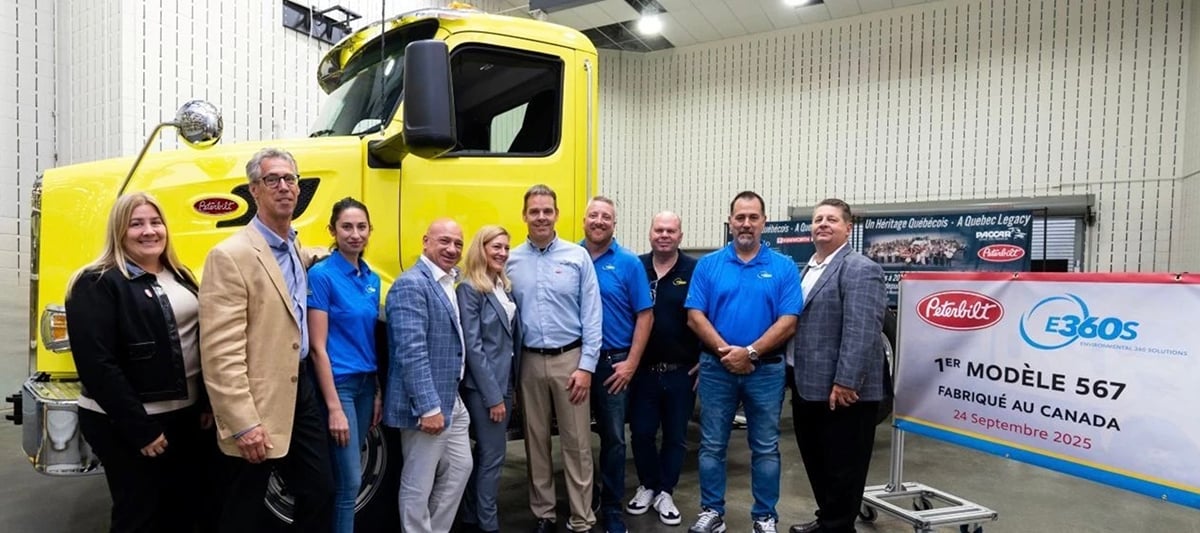BRANDON – Tow rope salespeople haven’t exactly been crying in their beer lately, or is that champagne they’re drinking now?
Grant Sroka, also known as the Rope Man, admits business has been good as mud gives farmers an opportunity to replace their worn and unsafe tow lines with new stuff.
The Edmonton-based supplier said farmers are taking advantage of their misfortune to upgrade to the latest rope technology.
“Yes, there actually is a lot of new technology in polymer ropes,” said Sroka. “The main thing we see is that there’s a swing away from cable and chain. Guys are catching on that rope is safer, plus you get that slingshot effect from the elasticity. They still buy steel, but not nearly as much.”
Read Also

Equipment manufacturing may return to Canada
Some ag equipment and automotive manufacturers are now adjusting their production and distribution to avoid tariff costs in relation to supplying the Canadian market.
A steel chain or steel cable capable of handling the pulling power of a 600 horsepower tractor is too heavy to work with in the mud. A rope with the equivalent strength is much easier to handle.
A chain or cable that snaps under load transforms into a whipping steel snake that cuts through the air and anything else in its path.
“But when a rope snaps, it makes one heck of a bang when it pops, and it stays at the height it’s pulling at. There’s no whipping,” he said.
“It usually drops back to three or four feet from the point where it snapped and then just falls to the ground.”
Sroka said new ropes also have braided loops at both ends, which helps avoid dangerous metal hooks.
He said the safest hookup is always a braided loop at both ends of a rope. The loop can be run through a safety shackle with a screw pin attached to the drawbar or run directly through the drawbar pin.
Sroka said the new polymers are more suitable for tow ropes. Traditional braided nylon round ropes have about a 40 percent stretch factor. Stretching a rope that much reduces the diameter and its strength.
The new braided round Tuf-Rope brand that Sroka sells stretches only 17 percent.
He said that’s still enough elasticity to get a decent slingshot impact yet maintain the strength of the rope.
The Tuf-Rope is resin coated so it won’t absorb water, mildew or rot. It should be pressure washed after each use and hung in the shop to dry.
Sroka said farmers sometimes overdo it when making purchases.
“Bigger isn’t better in this case. There’s a lot to consider. To sell you the right rope, I need to know what kind of tractor horsepower rating you’ll be pulling with.
“I always want to match the rope to the tractor. If you’re oversized on the rope, you won’t get the stretch you need for a slingshot. And slingshot is one of the reasons you want rope in the first place.”
He also sells flat nylon sling style tow lines from two to 12 inches that have a 200,000 pound rating and handle anything a 600 h.p. tractor can put out.
“A lot of guys like these straps because they roll up a lot neater than a braided rope, but they only have a seven or eight percent stretch. Not as good as a new polymer braided rope, but still better than steel.”
Sroka said farmers should consider replacing tow ropes within five to 10 years, depending on use. Even ultraviolet resistant polymer ropes should be stored away from direct sunlight.
“But the biggest enemy of any rope is a sharp metal edge, even a small metal edge.”
He said a rope’s integrity is compromised once it is cut, which is why loops with smooth round pins at both ends are essential.
All metal pins and shackles should be checked for burrs or sharp edges before each tow job.
An implement stuck in the mud is usually being held by suction, said Lawrence Papworth, an engineer with the Alberta Ag Tech Centre.
“You’ve got to break that suction before you can pull the machine out,” he said. “Pulling power alone usually won’t do it. But the snap or slingshot you get from a braided rope is what will break that suction. You don’t get that snap with a chain, and you can get only a small bit of snap with a cable. Rope is best.”
It’s possible to get that snap with chain or cable by taking a run at it with a long enough steel tow line and jerking the implement loose, but that can be a dangerous plan.
Jonathon Cook at Ag World in Kinistino, Sask., said he no longer stocks steel tow chains or cables.
“It’s mainly the safety factor,” said Cook. “Guys know that a snapped chain or a snapped cable can be pretty dangerous, so we don’t even sell them anymore.
For more information, contact Cook at 306-864-2200, Papworth at 403-329-1212 and Sroka at 780-718-4590 or visit gngdistributors.webs.com.















